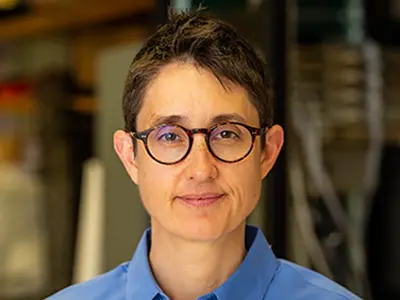Catherine Woolley
Making Connections
Throughout her career, Catherine Woolley has been dedicated to building networks within her discipline and across the larger scientific community. Now she is also working to build networks that connect Northwestern undergraduates with researchers at the forefront of studying the brain.
Woolley has made a significant impact at Northwestern in research and education. She was the driving force behind the redesign of the graduate curriculum in neuroscience. She also led the committee that developed the College's interdisciplinary neuroscience major, which has attracted hundreds of students since its debut in 2015. Woolley is also a member of the Women's Health Research Institute leadership council at Northwestern's Feinberg School of Medicine, where she encourages researchers to consider sex as a biological variable in their studies.

One of the distinctive things about Northwestern is that we have a Department of Neurobiology within a College of Arts & Sciences, and that provides a really diverse ecosystem for interdisciplinary research.”
— Catherine Woolley, William Deering Professor of Biological Sciences, Department of Neurobiology
Groundbreaking Research
Woolley is widely known for groundbreaking studies in 2012 and 2015 in which her research group discovered intrinsic biological differences between males and females in molecular pathways that regulate synaptic communication in the brain. Their results provided a scientific basis to predict that male and female brains may respond differently to drugs targeting certain synaptic pathways.
In 2016, Woolley received a High-Risk, High-Reward Transformative Research Award, a program supported by the National Institutes of Health, which is given to highly creative, exceptional scientists with bold approaches to major challenges in biomedical research.
Before joining Northwestern, Woolley earned her PhD in neuroscience from The Rockefeller University and completed her postdoctoral studies in neurosurgery at the University of Washington. She is now the William Deering Chair in Biological Sciences in the Department of Neurobiology and a member of the Center for Reproductive Sciences, the Cognitive Neurology and Alzheimer's Disease Center, and the Robert H. Lurie Comprehensive Cancer Center.
Selected Recent Honors
- Charles Deering McCormick Professorship of Teaching Excellence, Northwestern University (2018)
- Transformative Research Award (2016)
- William Deering Chair in Biological Sciences, Northwestern University (2013 )